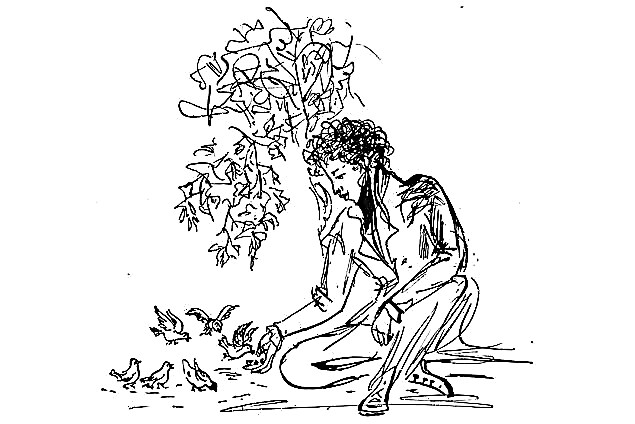The time at which Saltykov-Shchedrin wrote the tale “The Wise Gudgeon” can be described as politically active. A significant part of society actively participated in the discussion of future changes. However, among the nobles there were those who preferred to sit back and remain silent while others were working for the good of the state. These people lived an inconspicuous, interesting and empty life, and the author calls all this with one phrase “moderate liberalism”. Saltykov-Shchedrin condemns this position. The author was burning with the idea of making his country better, and he was annoyed by those who wanted to endure and hide, to sacrifice their right to vote in order to avoid danger. And so the fairy tale “The Wise Gudgeon” appeared. In it, the writer makes fun of the position of cowards, using Aesopian language. It is clear that this is, of course, not about fish, but about people.
The action of the tale takes place on the seabed. The protagonist, a gudgeon, receives advice from his father: “If you want to chew on your life, look at both!” He decides to unquestioningly follow this advice and begins to fear literally everything that surrounds him. His fear develops into a serious phobia, he looks at other fish and realizes that anyone can offend a harmless gudgeon. He can be eaten at any moment, but he cannot eat anyone. And then the gudgeon consciously escapes from everyone, walled himself in a hole and deprived of any social contact. He never leaves his shelter, he cannot even swim out for food, so he is starving. His life becomes meager and monotonous, devoid of any kind of activity and all meaning. All he does is fear. And even when he finally dies, nothing significant happens, either for himself or for those around him: no one notices this. He leaves without a trace in unconsciousness, as if he had never been in this world. The author characterizes his life with this phrase: “Lived - trembled, died - trembled”.
Saltykov-Shchedrin tried to depict a portrait typical of the liberal intelligentsia of the era of Alexander III, using the example of the mongrel-minnow, the significant part of which chose the path of voluntary self-isolation in the legal sense. This happened under the pressure of opponents of reforms, as well as under the influence of a wave of government persecution, which caused a real panic among people.
Therefore, the author shows us all the meaninglessness of the life of a minnow who was so preoccupied with saving the physical body that he forgot about the spiritual body. It’s not enough to just exist, it’s important to live for real. Saving the life of a poor gudgeon itself became an absolutely senseless act and nullified the value of the time he spent alone in emptiness and silence.
It turns out that the whole meaning of the life of a wise gudgeon was only one fear for his life and nothing more (the author specifically calls him “clerk” - from the word “squeak”). He is afraid to take a chance and go outside, take an extra step, even say an extra word, therefore does nothing. He survived, but what's the point? The author leaves this question rhetorical. Pescara himself devalued the gift of his life, succumbing to fears, making his appearance stupid and useless to anyone.












